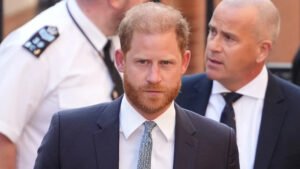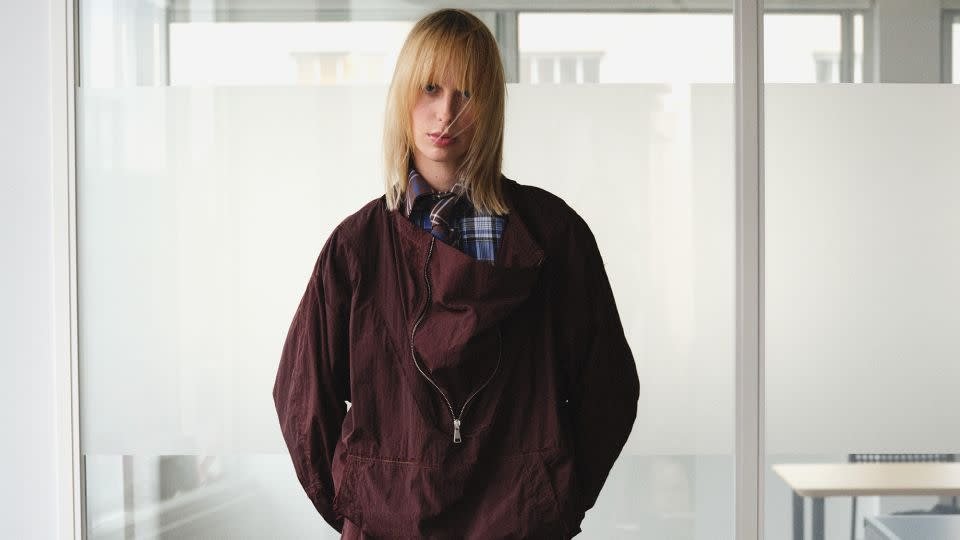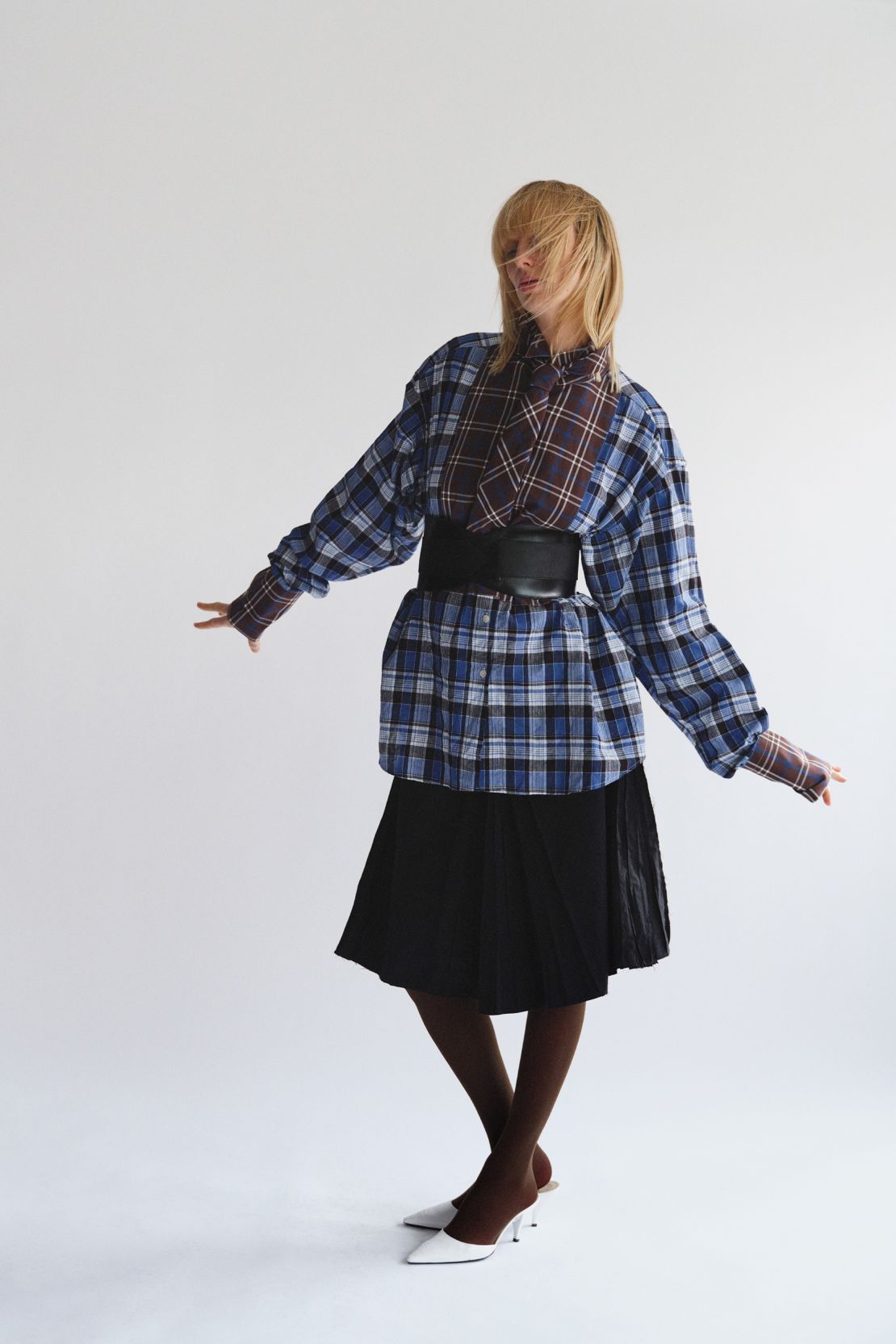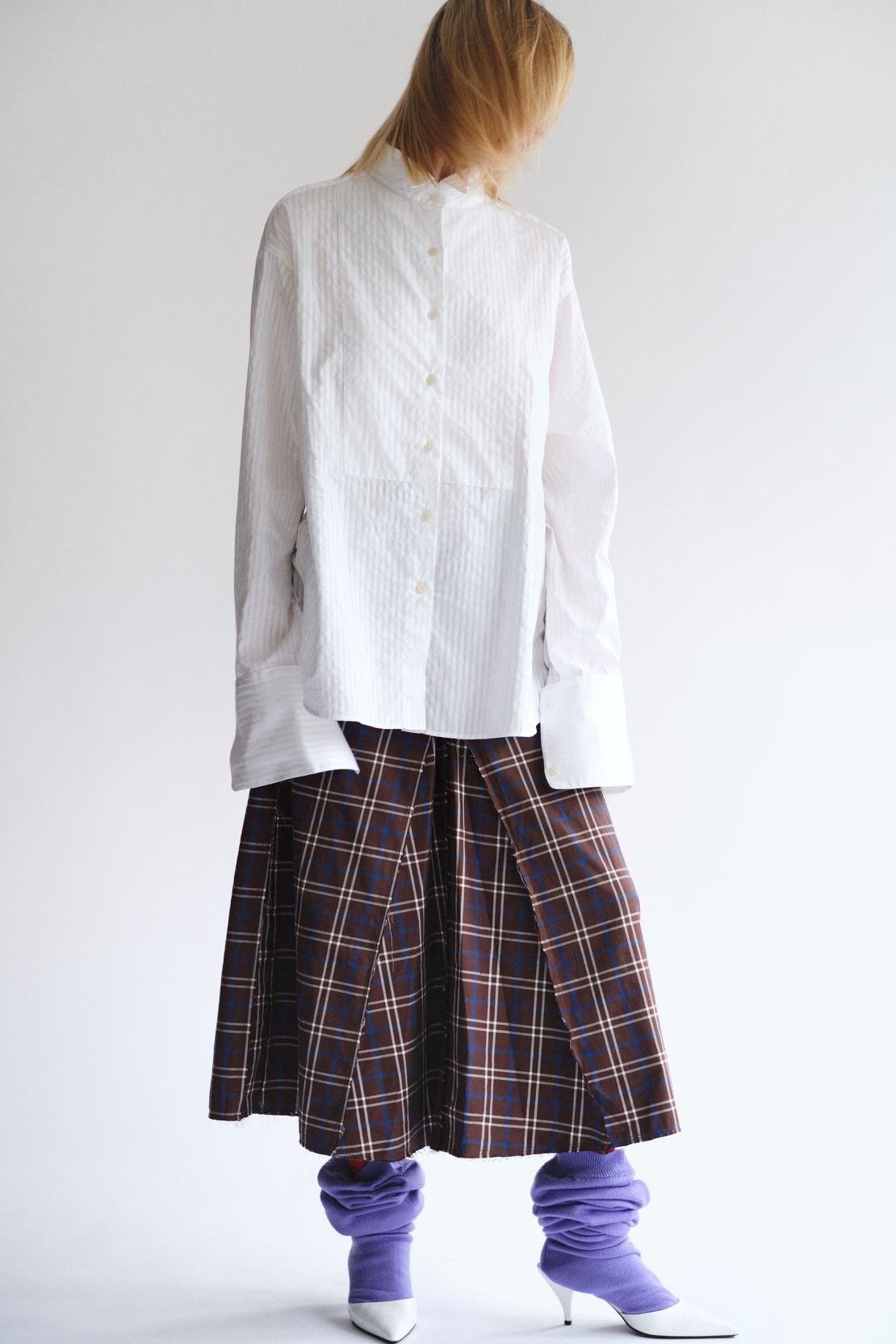So far, Lipkin-Connor has done well for herself. Her 5-year-old label, stocked by stores including Browns Fashion, Farfetc,h and SSENSE, has this week been shortlisted for the prestigious BFC/Vogue Designer Fashion Fund. She has also just presented her Fall-Winter 2025 collection as part of London Fashion Week.
Sat in her East London studio, she starts sketching out her heritage on paper. “So there were three brothers,” she told CNN, drawing a horizontal line across the page. Her great grandfather Saul, and two great great uncles Sam and Campbell, owned three tailoring shops across Liverpool between the 1930s and 1980s. Named The Abrams Brothers, it was a cornerstone of the Liverpudlian menswear scene, even having been visited by The Beatles between their early shows at the city’s hallowed Cavern Club. Not much remains of the business, however, and Lipkin-Connor finds that keeping track of events is difficult. “All my great aunts just chime in randomly like, ‘Don’t you remember that?’ It’s like, ‘No. That was 70 years before I was born,’’” she said.
Family success continued during the Swinging Sixties with her great uncle Ralph who made a name for himself in womenswear. In the mid-1960s Ralph opened Lucinda Byre, a boutique selling clothes from multiple brands, including miniskirt pioneer Mary Quant, in the center of Liverpool that later expanded across the North of England. (The name was a combination of his gentry in-law, Lord Byre, and a fictional character called Lucinda).
“They were one of the first to stock (Vivienne) Westwood or Mulberry,” said Lipkin-Connor, pointing to a film photograph of one of the shop assistants dressed in a piece from Westwood’s 1981 debut collection. The boutique also carried its own range of cashmere knitwear and shoes — the remnants of which are largely scattered across the wardrobes of extended family. Some garments have found their way downstream to London, with friends discovering pieces in vintage shops on the historical Portobello Road. So beloved was Lucinda Byre that Lipkin-Connor has even inherited a few of its customers, who send through photos of their treasured garments and describe happy memories.
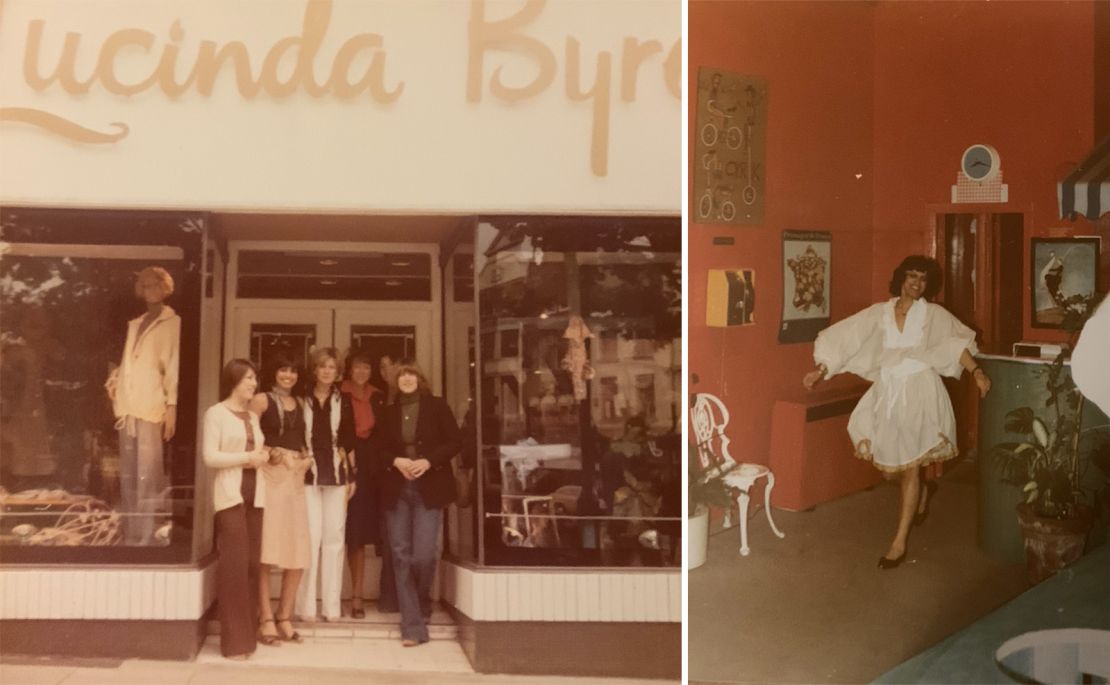
‘Challenging times’
With the British fashion industry facing disruption in the wake of Brexit, as well as other challenges including rising studio costs, low industry wages, and a lack of government funding, Lipkin-Connor is navigating a very different environment from her predecessors. “It’s something we discuss a lot in my family at the dinner table,” she said. “(In terms of) funding and access to a lot of things, it’s just harder.”
Amid increased import and export tariffs as well as the scrapping of VAT refunds for tourists in the UK, several independent brands have relocated to Paris or Milan to ensure their survival. “It makes the UK very isolating,” said Lipkin-Connor, who uses manufacturers in Italy to avoid a hefty price tag when shipping to EU customers.
Following the footsteps of her fashion forefathers is also difficult because of high costs and red tape. While clearing out her grandma’s apartment in Liverpool, Lipkin-Connor found rolls of fabric from heritage cloth merchants Dugdale Bros & Co., which had previously supplied the Abrams Brothers store. Hoping to do the same with her own label, Lipkin-Connor visited the UK-based supplier, which provided her with “loads of scraps and stuff. That’s what we used to start with, but now, unfortunately, it’s not sustainable for us to use that fabric because it’s British based,” making it expensive to ship to Italy for production, she explained.
The challenges for UK-based designers are top of mind for Caroline Rush, outgoing CEO of the British Fashion Council, who used her opening speech at London Fashion Week as a call to action for more investment and government support. “As we all know it is challenging times,” she told the press, buyers, and other show attendees Friday morning. “As we look ahead, I just want to note that further support from our government is crucial… Our creativity is the envy of the world, let’s make our businesses that too.”
A store with soul
Lipkin-Connor’s new collection, presented on Friday, nods to items from Lucinda Byre — for example, a patterned Cacharel dress, once bought from the shop and dug out by her mother. She also took inspiration from vintage knitwear, adding her little flourishes to them. “When I was in Liverpool we found an old Mary Quant (knit) that used to (be) stocked (at Lucinda Byre) which had this pocket detail. Then we were like, ‘Oh, should we add a little pocket?’” But Lipkin-Connor is careful not to be overly influenced by the past. “We’re aware that there’s so much history there, but it could very easily become too nostalgic. And that’s not the point of it,” she said. “Lucinda Byre was forward (thinking)… So it’s really important that it still feels fresh.”
Her ultimate goal is to revive the excitement of high street shopping through a bricks-and-mortar store. “People still crave that,” she said. “There’s nowhere, especially for me and my sister, where we’d go and shop in London.” If the Lucinda Byre flagship store was topped with a French bistro (where Lipkin-Connor’s father was grilled by her grandma on marrying into the family), what might Talia Byre offer one day? “Someone the other day said we should have a wine bar,” she laughed. It could fit nicely into her vision for a multi-purpose space with a showroom, store and atelier “that’s got soul.”
There is something about Talia Byre — with its offbeat approach to layering and barrel-sleeved shirts styled on bleached-brow models with black lips — that feels distinctly this century. But the label’s intrinsic modernity also seems to happily coexist with its deep, winding roots. It’s a duality Lipkin-Connor herself recognizes and embraces. “The same woman that shopped (at Lucinda Byre) is the same woman that shops with us now,” she said. “It’s just a different period of time.”
